The startup ecosystem in India is finally coming of age, and the government is doing its bit to make life easier for entrepreneurs. Let's face it, things are pretty tough for entrepreneurs already. They have to build a product, find talent, please customers and make sure they don't run out of money. It's not unlike fixing an aircraft mid-air: A hair-raising experience! So the last thing a startup needs is to be choked in red tape.
And so, under the directive of Prime Minister Narendra Modi, the government initiated the Startup India plan in January 2016. This flagship program aims to encourage the growth and expansion of startups in India.
The core idea behind starting this initiative was to focus on areas like simplification and hand-holding for the startup ecosystem in India; funding support and incentives; and facilitating industry-academia partnership and incubation.
With startup culture becoming more popular over the last few years, the program has also been a way to harness entrepreneurship for the growth of the Indian economy. Since its launch, Startup India has helped increase employment opportunities, especially for young professionals.
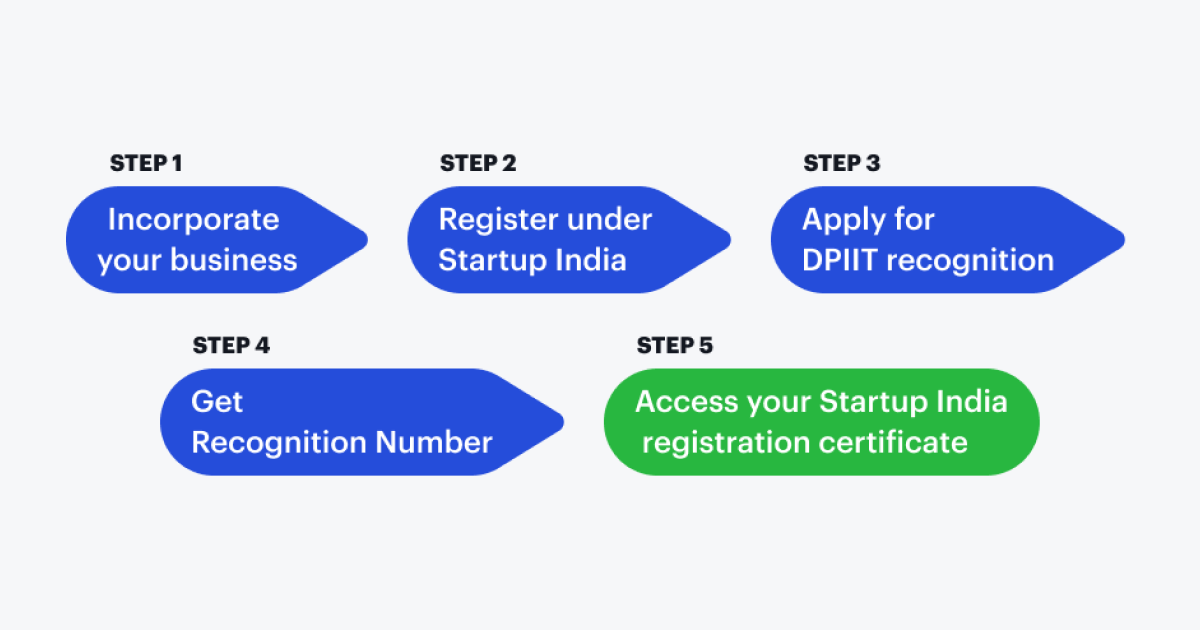
What is a startup?
But wait, what really qualifies as a startup? A company in its nascent stage of operations can be called a startup. The company or organization is usually started when the founders believe that the product they offer has a unique value proposition and there's a demand and market for said product or service.
Until the company starts making money, they're usually funded by the founders. They may also attempt to attract financial interest from outside investors. Commonly, this is in return for a stake within the startup.
Startups who are eligible for Startup India
A company qualifies to be a startup under the Startup India scheme if it satisfies the following conditions:
- The startup must be incorporated as a private limited company, registered as a partnership firm or limited liability partnership in India.
- It should not have been more than 10 years since the date of its incorporation or registration.
- The turnover since the incorporation, in any financial year, must not have exceeded ₹100 crores.
- The startup should have a scalable business model that can generate wealth or create job opportunities.
- The startup must work towards the advancement of products or services offered
Benefits of registering an entity under the Startup India scheme
In order to avail of any benefits under the Startup India Scheme, the startup must be recognized by the Department of Industrial Policy and Promotion (DIPP). These are some of the benefits of the scheme:
Self-certification
Entities registered under the Startup India scheme can self-certify compliance for six labor laws and three environmental laws. This reduces the burden of regulation on the startups. Instead, the companies can concentrate on their core business and keep compliance costs to a minimum.
Startups are allowed to self-certify their compliance for five years from the date of incorporation. In the case of the environmental laws, units that operate under 36 white category industries, do not require environmental clearance for three years.
Tax exemptions
Taxes are a worry for most startups and the government of India is trying to ensure that capital requirements are less of a worry in the initial years. Recognized startups that are granted an Inter-Ministerial Board Certificate (IMB Certification) are given an income tax exemption for three years. Certified startups also receive an exemption on capital and investments above Fair Market Value.
In the case of bankruptcy
Things don't always go right with startups. Recognized startups under the Startup India scheme are considered “fast track firms”. This allows them to wind up their operations within 90 days, compared to 180 days for other companies. Insolvency professionals appointed for the startup will facilitate the asset liquidation process and pay off creditors within six months of application filing.
Faster patent application and IPR protection
Along with an expedited process of patent filing, startups under the Startup India scheme will also get an 80% rebate in their application fees. There's also a 50% rebate provided for trademark filing compared to other companies. The government also has a panel of facilitators, who will impart general advisory on IPR protection and promotion to the startups, and the government will bear the entire fee for their services.
Easier Public Procurement Norms
DIPP recognized startups can get listed on the Government e-marketplace, the country's largest e-procurement portal. The startups will also be given an exemption on requirements for prior turnover and experience, as well as Earnest Money Deposit.
SIDBI Fund of Funds
The government of India has earmarked a fund of ₹10,000 crores, managed by SIDBI, to provide a boost to startups in India. This “Fund of Funds” sees the government participating in the capital of SEBI registered Venture Funds, who then invest in the startups.
According to the latest available numbers, ₹400 crores has already been invested in 97 startups under this scheme.
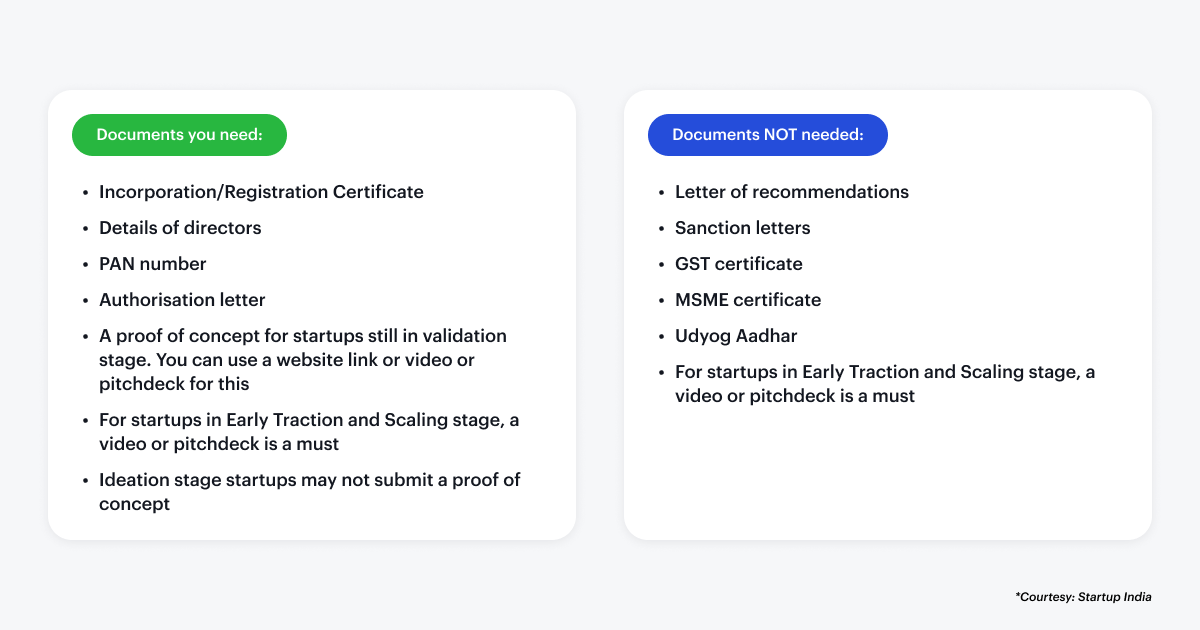
Minimal documentation requirement for registration under Startup India
One of the biggest reasons for flagging off a program like Startup India, was to help startups thrive in the country. Earlier, startups had to go through the same routine as all other companies did, in order to register themselves and be recognized. The program was conceptualized to discard the License Raj, i.e. multiple permissions requirements, and lots of red tape.
The documents required to register your startup under the Startup India scheme are:
- Certificate of Incorporation or Registration of your startup
- Details of the company
- PAN number
- Details of Partners or Directors
- A proof of concept if your startup is in the validation stage
- Patent or trademark details (optional)
Steps to register your startup under Startup India scheme
Step 1: Incorporate your business
Before anything else, you need to incorporate your business as either a Private Limited Company, a Partnership firm, or a Limited Liability Partnership. The process is the same as registering any business and will require you to get a Certificate of Incorporation or a Partnership Registration, a PAN number for your startup, etc.
Step 2: Register under Startup India
This step is quite straightforward—you will have to register your entity as a startup under the Startup India scheme in order to avail of its benefits. Head to the Startup India website and fill out the form with the required details. Your profile is now ready to go!
Step 3: Apply for DPIIT recognition
Getting a Department for Promotion of Industry and Internal Trade (DPIIT) recognition will allow your startup to get benefits like tax exemptions, self-certification facilities, easier access to patent applications and IPR protection, the ability to wind down a company quickly, easier Public Procurement Norms, access to Fund of Funds and more.
Click on the “Get Recognized” button on your profile to get a DPIIT recognition certificate procedure started.
Step 4: Get Recognition Number
Once you've sent in your application, you will be sent a recognition number with immediate effect. Bear in mind that the issuance of the certificate of recognition is subject to the vetting of all the documents you've submitted. It can take up to two days for the process.
When filling out the forms and uploading documents, one needs to be extremely cautious. Uploading incorrect documents, failing to submit relevant ones, or sending across forged documents can attract a heavy fine. You can be liable to pay up to 50% of your startup's paid-up capital or a minimum fine of ₹25,000.
Step 5: Accessing your Startup India registration certificate
Once you receive your system-generated certificate of registration in your mail, you can access it from your account on the Startup India website. You can also download the certificate from the Startup India portal for future use and ease of access.
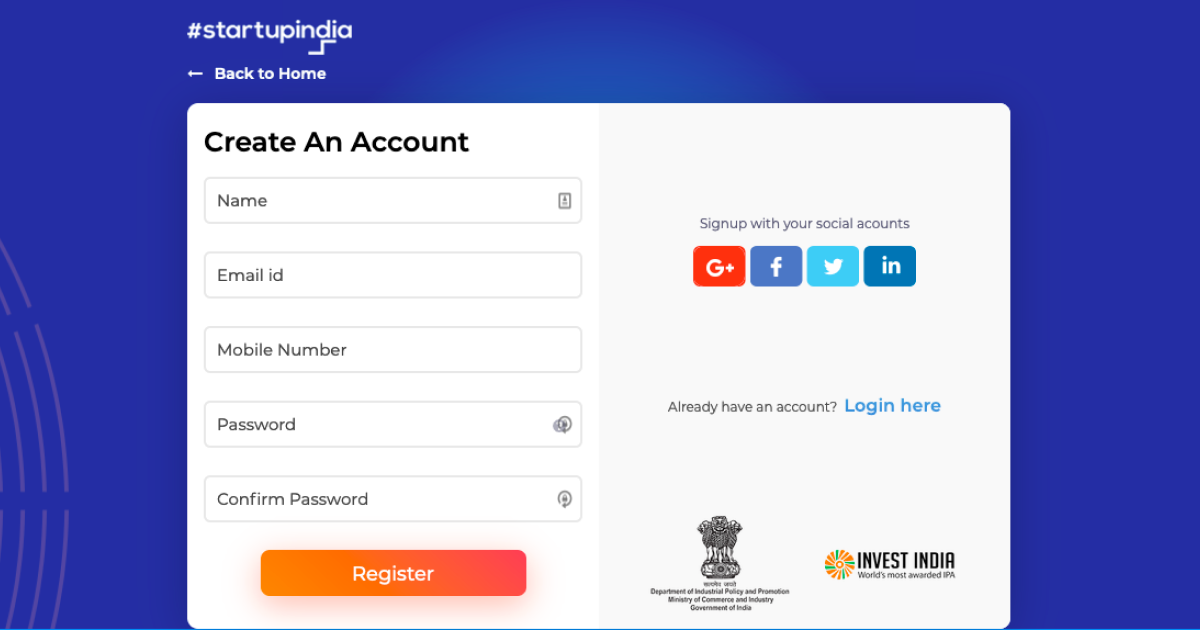
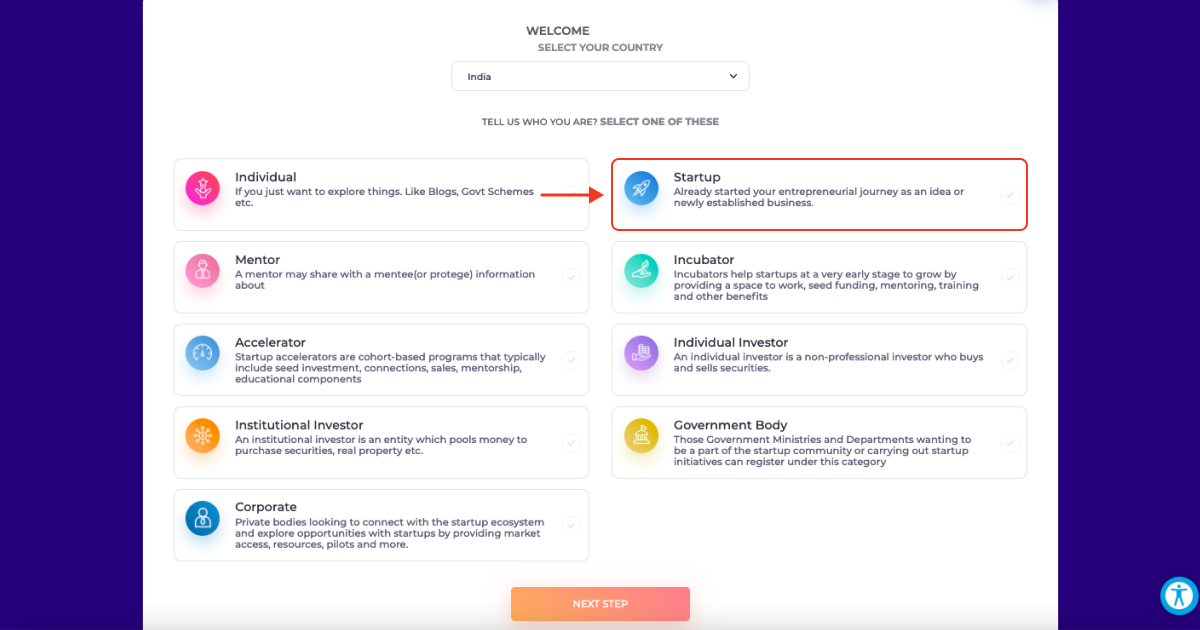
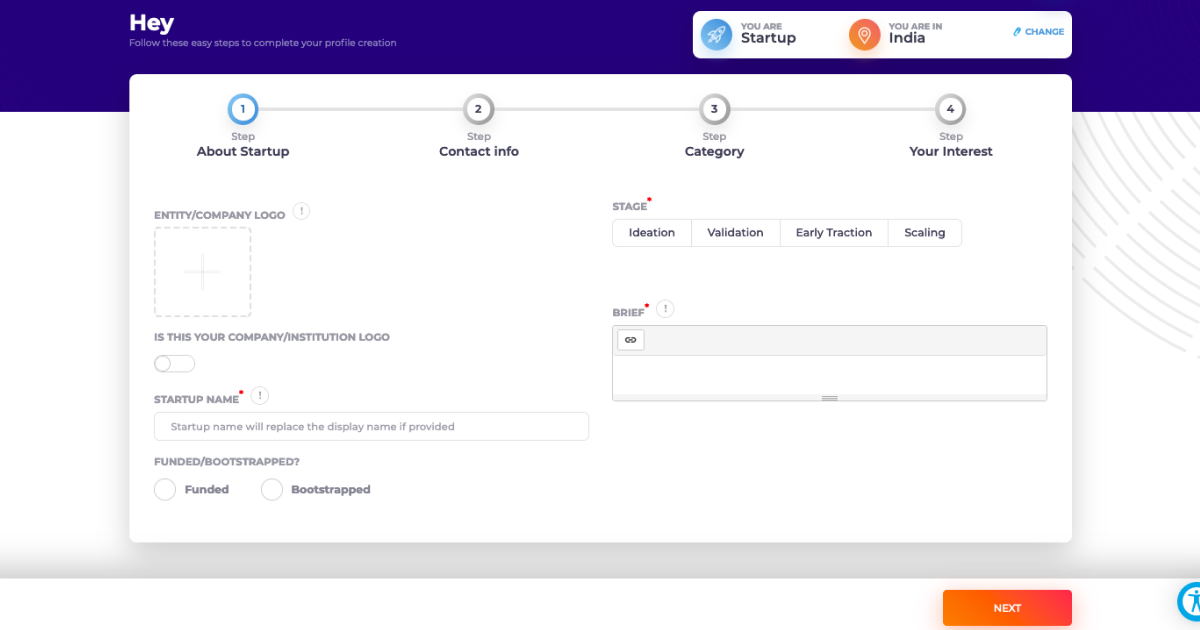
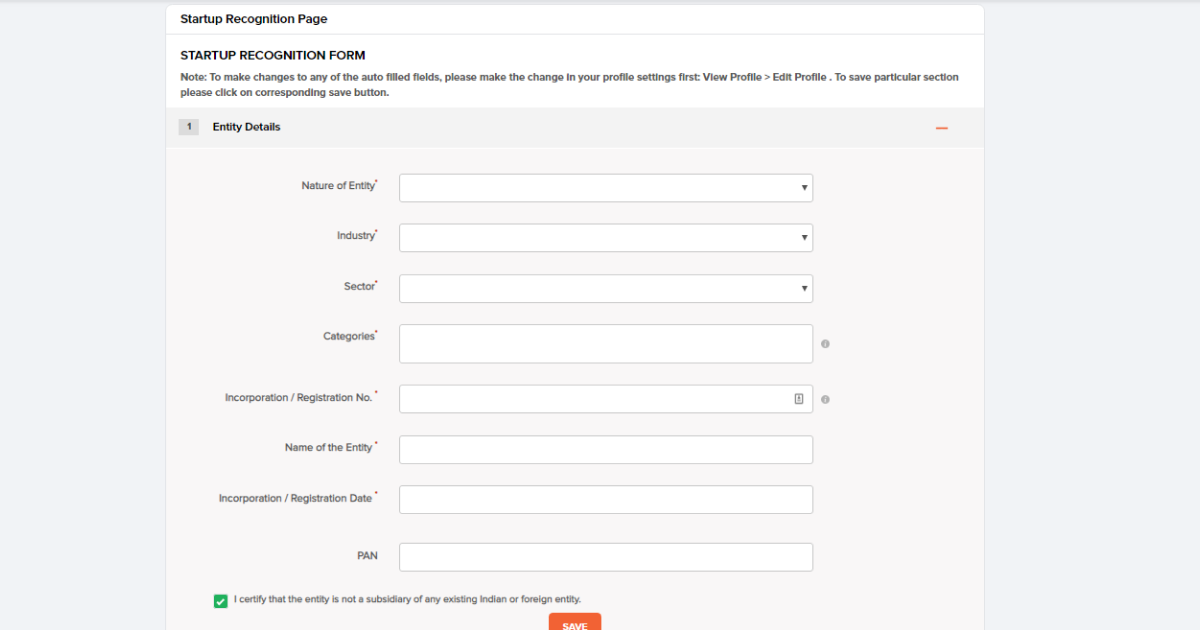
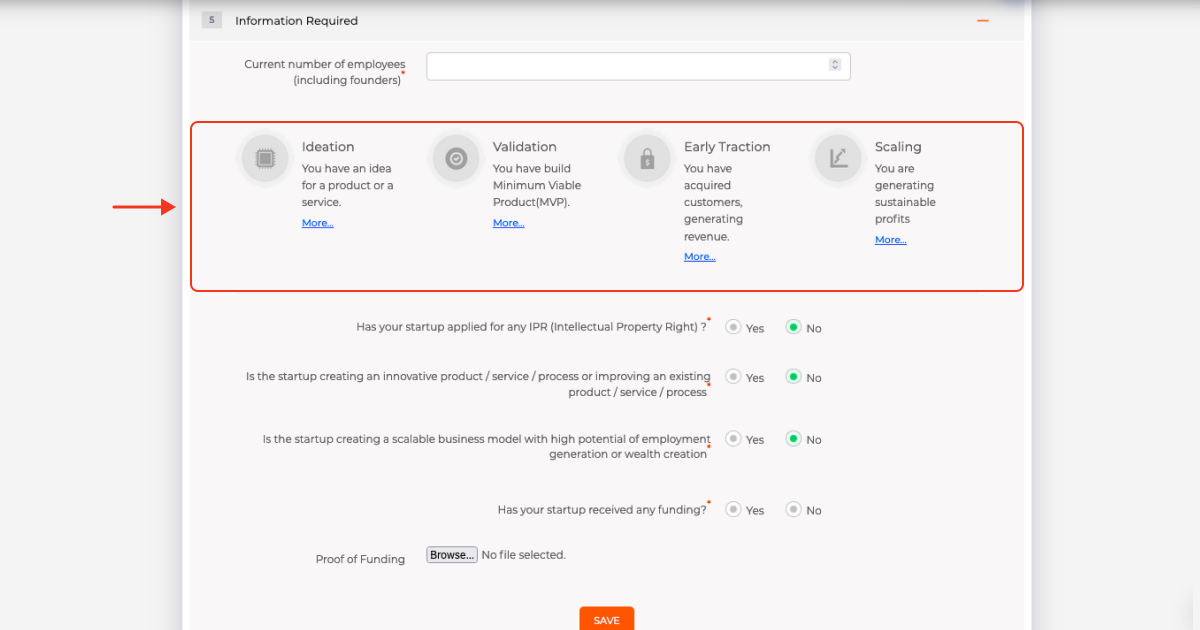
Frequently asked questions about Startup India scheme
Can a foreign company register as a startup under the Startup India hub?
Yes, as long as the entity has at least one registered office in India, it can register itself as a startup under the Startup India scheme. It must, naturally, meet every other criterion all other startups have to adhere to. Future provisions for foreign stakeholders to register under Startup India are being made, but haven't been rolled out so far.
Can I register on Startup India without a PAN?
While you can register an entity on the website without a PAN, it's highly recommended that you apply for one and provide the details during the registration process.
Do I need a letter of support or letter of recommendation along with my application to Startup India?
The government of India no longer requires a letter of support or recommendation alongside your application. Other documents that have been waived off, which were previously required, are:
- Sanction Letters
- Udyog Aadhar
- MSME Certificate
- GST Certificate
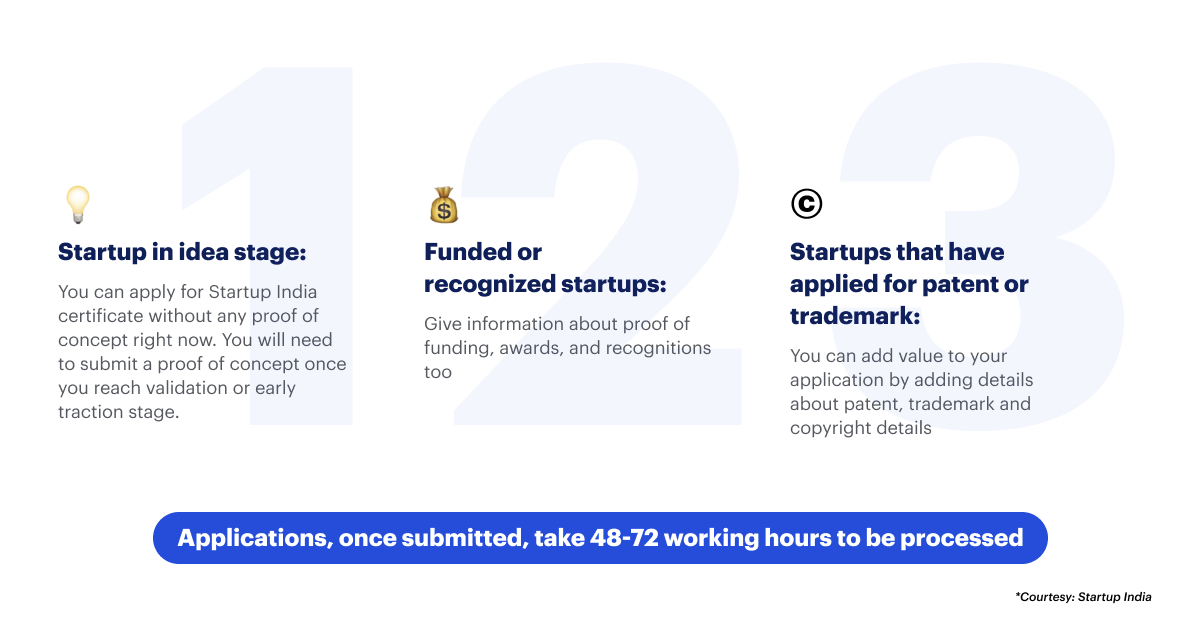
What is a proof of concept that I need to submit along with my registration details?
You can attach your website link, a video, or even your pitch deck as proof of concept if your startup is in the validation stage. If your startup is in the Early Traction or Scaling stage, you will need to provide a video or pitch deck in addition to the company website.
Last, if your startup is still in the ideation stage, you do not need to submit a proof of concept.
What is a Startup India presentation and how can I make one for my startup?
An initial pitch presentation is typically required along with your registration to give a deeper understanding of what your business model is like, an introduction to your company, and the area you're working in. While it shouldn't exceed more than 12-15 slides, it should also cover the points mentioned below:
- A cover slide
- Team details
- The issue or pain point your product/solution addresses
- Product/technology overview
- Business model
- Competitive landscape
You can also add financial detail slides like:
- Size of market opportunity
- Current traction
- Financials current and projections
Make sure to also add your funding needs, use of funds, and proposed valuation as a slide in your pitch presentation too. You can also give details about the current equity structure you're following, as well as your fundraising history and details of investors if any.
Don't forget to mention if you have any exit options for investors in mind. If needed, you can explain exits in your industry as a comparable example.
Sketchnote has a handy module and template for creating your own pitch deck presentation that you could refer to for free.
Where can I find Startup India registration form?
To register for benefits under Startup India, you will be required to first create a profile on www.startupindia.gov.in. If you're a new user, click on register and provide your details. You can also use any of your social media accounts to register on the Startup India website.
If you're a returning user, you can simply log in. Then, follow the steps mentioned above to register your startup and apply for DPIIT recognition.
What is a certificate of eligibility for Startup India?
In order to receive tax-related benefits, a startup must have a certificate of eligibility issued by the Inter-Ministerial Board (IMB). the IMB is constituted of representatives of other related organizations such as DIPP, DBT, DST, and MEITY. If your startup has been incorporated on or before April 1, 2016, you can apply for tax benefits and other innovative applications. The IMB will then moderate applications and grant the certificate of eligibilty.
How much are Startup India registration fees?
You can simply sign up on Startup India's website, register your startup and apply for DPIIT recognition for free.
How can I check Startup India application status?
According to the government, it can take anywhere between 48 to 72 working hours for your application to be processed once you apply for it. However, you can also head to the Recognition Application Detail page in order to check your application status while you wait for it. On being recognized, you will also receive a mail containing the certificate of registration.
The Startup India program offers lots of resources for Indian entrepreneurs after registering on the platform. From tools on the portal itself, to access to mentors via the program—startups in India can benefit from being a recognized part of the scheme. The government also provides a number of initiatives for startups including incubators and facilities for women entrepreneurs.
However, registering with Startup India is only the beginning of your journey as a startup. To be able to grow sustainably as a startup will require more than just facilitation and ease of administrative processes.
When it comes to ensuring success as an early-stage startups, you must assemble a great team early on and build a solid MVP. And while the aim is to raise funds, you need to consider getting smart money when you approach investors.
Learn more about early-stage startup lessons on how to build and ship quickly, choosing the right co-founders, and finding the right investors on Sketchnote!



